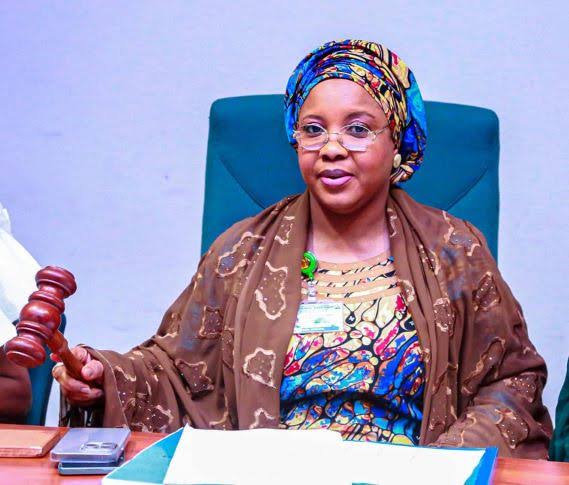By Paul Effiong, Abuja
Bill seeking to amend the Armed Forces Act yesterday scaled second reading in the House of Representatives.
The proposed legislation is seeking to amend the Armed Forces Act, CAP A20 Laws of the Federation of Nigeria 2004 in order to ensure at least 15 percent of women representation in the enlistment, recruitment and appointment of service personnel. It requires the armed forces to provide and maintain a gender-responsive compliance programme in the enlistment, recruitment, training, provision of accommodation, operational engagement, provision of logistics, marital status, posting and discipline of service personnel, and ensure the establishment of a unit to monitor and maintain records of the gender-responsive compliance programme and disaggregated data collation.
The Bill is sponsored by the Chairman, House Committee on Women Affairs, Kalifat Ogbara.
In her brief summary of the expected legislation, Ogbara informed lawmakers that the Armed Forces of Nigeria, which comprised the Army, Navy, as well as the Air Force, play a central role in safeguarding national security and defending the territorial integrity of the country.
According to the Lagos-born representative, women’s participation in the armed forces remains significantly low, particularly in leadership and operational roles, while advocating for her colleagues to speak in support of her Bill.
She explained that the current legal framework under the Armed Forces Act, CAP A20, Laws of the Federation of Nigeria 2004, lacks specific provisions that guarantee gender inclusion or affirmative action in recruitment, training and promotion.
‘The current structure of the Armed Forces Act has resulted in systemic underrepresentation of women, reinforced by cultural and institutional biases”, she said.
. Ogbara noted that globally, the United Nations Security Council Resolution 1325 (2000) on Women, Peace and Security, as well as Nigeria’s National Action Plan on UNSCR 1325, advocate increased participation of women in peace and security, adding that these instruments highlight the importance of gender equity as a strategic imperative for operational effectiveness, legitimacy and human rights compliance within the military.
“The proposed amendment seeks to introduce legally binding provisions that guarantee a minimum of 15 percent female representation in recruitment and appointments, and mandate a gender-responsive compliance framework across military operations.
“The inclusion of a gender-monitoring unit and systematic disaggregated data collation aligns with international best practices and Nigeria’s constitutional commitment to equality and non-discrimination under Section 42 of the 1999 Constitution (as amended)” she said.
Meanwhile, Ogbara explained that the proposed legislation resonates with the provisions of the Convention on the Elimination of All Forms of Discrimination Against Women, CEDAW, to which Nigeria is a state party, maintaining that the Bill represents a strategic legislative intervention aimed at institutionalising gender inclusivity and addressing structural inequalities in the Armed Forces.
She also highlighted some basic objectives of the proposed amendment emphasising that the expected legislation will mandate the establishment and implementation of a gender-responsive compliance programme to guide all aspects of military administration—including training, accommodation, logistics, posting, operational engagement, and discipline—ensuring equal treatment and non-discrimination in line with national and international legal obligations.
Consequently, the proposed amedment will also provide for the creation of a dedicated unit within the Armed Forces to monitor compliance with gender-responsiveness, maintaining disaggregated data on personnel to ensure effective oversight, reporting, and evaluation of gender-based reforms within the armed forces.
In summary, the sponsor of the Bill explained that in a world where modern security challenges demand diverse perspectives and inclusive strategies, it is imperative that the armed forces reflect the full strength of Nigeria’s population, men and women alike.





